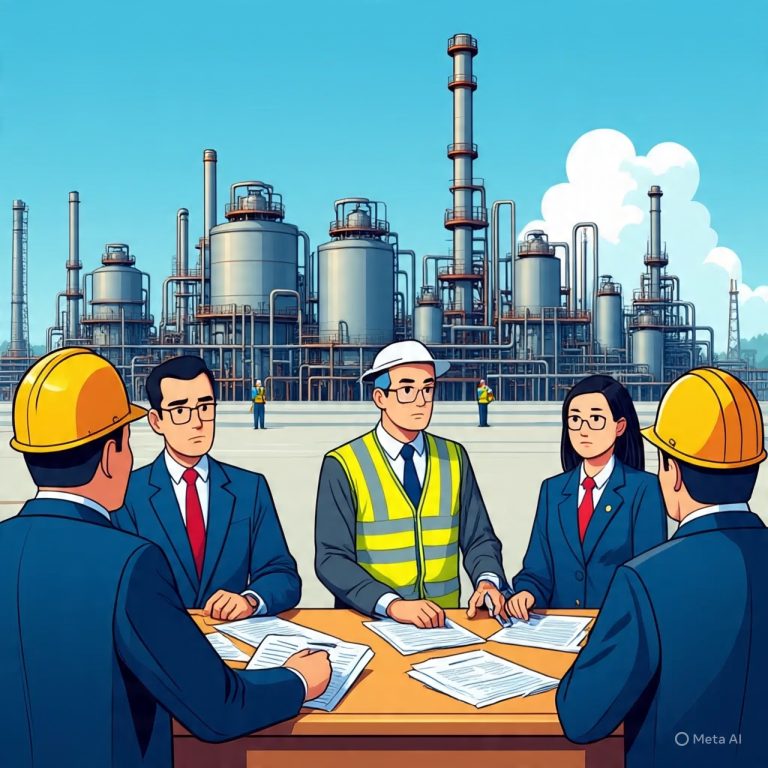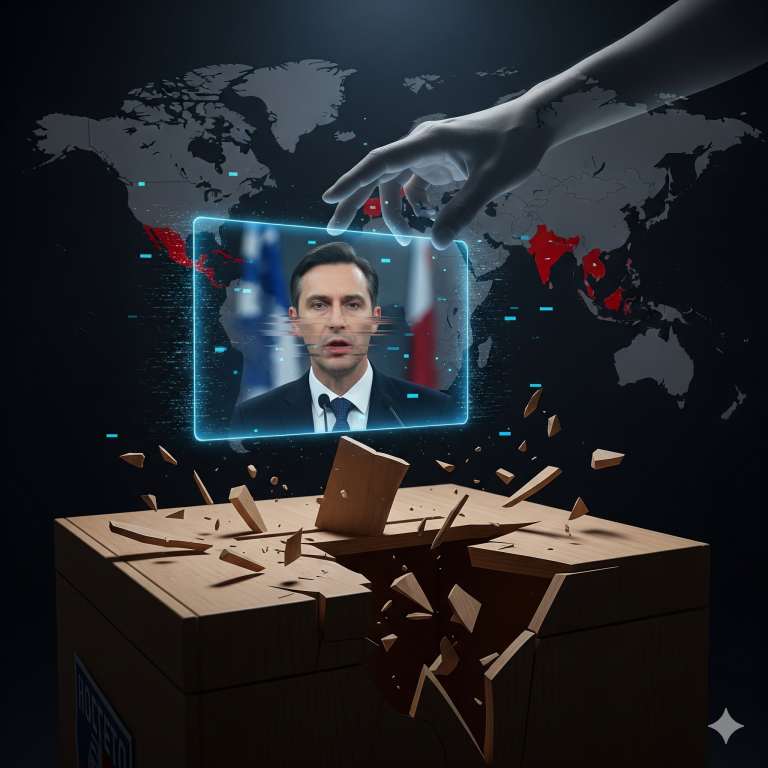
How Climate Change Is Changing Global Leadership

In 2025, climate change is not just an environmental issue—it’s shaping global leadership. Countries facing extreme weather, food shortages, and rising sea levels are demanding urgent action. Leaders who ignore climate issues risk losing public trust, while those who prioritize green policies are gaining power.
Nations that invest in clean energy, disaster preparedness, and sustainability are becoming new global influencers. Meanwhile, governments struggling with climate disasters are seeking international aid, shifting political alliances. Climate change is also pushing leaders to cooperate more, as no single country can solve the crisis alone.
At the same time, businesses and activists are pressuring politicians to act. Voters are demanding leaders who take climate change seriously, influencing elections and policies. In this new world, leadership isn’t just about economics or military power—it’s about who can protect people and the planet from a rapidly changing climate.
Rising Temperatures, Rising Tensions: Climate Conflicts

As temperatures rise, so do global tensions. Climate change is making resources like water, food, and land scarcer, leading to conflicts between nations and communities. In 2025, many countries are struggling with extreme droughts, floods, and wildfires, which are forcing people to migrate. This creates political disputes as governments debate how to handle climate refugees and share limited resources.
Richer nations are often blamed for contributing the most to climate change, while poorer countries suffer the worst effects. This has led to heated global discussions about climate justice—who should take responsibility and pay for the damage? Some countries are even facing internal conflicts, as citizens demand stronger climate policies.
Without action, climate-related tensions will only grow, leading to more disagreements and instability worldwide. Governments must work together to find fair solutions, or the fight over resources could turn into a major global crisis.
4o
Climate Refugees: A Growing Political Challenge\

In 2025, climate change is forcing more people to leave their homes. Rising sea levels, extreme storms, droughts, and wildfires are making entire regions unlivable. These people, known as climate refugees, are searching for safer places to live—but many countries are struggling to handle the crisis.
Nations receiving large numbers of climate refugees face political debates over resources, jobs, and housing. Some governments are tightening borders, while others are calling for new international agreements to support displaced people. Climate migration is also increasing tensions between countries, as some argue over who is responsible for helping these refugees.
Without global cooperation, the situation could worsen, leading to more conflicts and humanitarian crises. Governments need to take action by creating fair policies, helping affected communities, and working together to slow climate change. If we don’t act now, climate refugees will continue to face an uncertain and difficult future.
Green Energy and Political Power Shifts

In 2025, green energy is changing the balance of power in global politics. Countries that once depended on oil and gas are now investing in renewable energy like solar, wind, and hydro. This shift is reducing the influence of oil-rich nations while boosting the power of countries leading in clean energy technology.
Nations with strong green energy industries, such as China and the U.S., are gaining more control in international discussions. Meanwhile, oil-dependent countries are struggling to adapt, leading to economic and political instability. Some governments are rushing to make deals on renewable energy, while others resist change to protect their fossil fuel industries.
As the world moves toward cleaner energy, political alliances are shifting. Countries that act fast in the green revolution will have more influence, while those that delay may fall behind. The future of global politics now depends on who leads in the race for sustainable energy.
The Role of Big Countries in Fighting Climate Change

In 2025, the fight against climate change is largely in the hands of the world’s biggest countries. Nations like the U.S., China, and the European Union have the most resources and influence to push for greener policies. They invest in renewable energy, create stricter pollution laws, and set global standards for reducing carbon emissions.
However, not all big countries agree on how to tackle the crisis. Some focus on clean energy, while others still rely on fossil fuels for economic growth. This leads to political tensions, as smaller nations often suffer the most from climate disasters but have little say in global decisions.
International agreements like the Paris Climate Accord try to keep big countries accountable, but progress is slow. While some leaders take climate change seriously, others prioritize short-term economic gains. The real question is—will big countries work together fast enough to prevent a bigger crisis?
How Extreme Weather Is Shaping Government Policies

In 2025, extreme weather events like hurricanes, wildfires, and floods are forcing governments to take climate change more seriously. Countries that once ignored the problem are now making new policies to protect people and economies.
Many governments are investing in stronger infrastructure, such as flood barriers and heat-resistant buildings, to prepare for future disasters. Some leaders are also introducing stricter environmental laws, like cutting carbon emissions and promoting renewable energy. However, not all countries agree on how to handle the crisis, leading to political debates and tensions.
Disaster relief has also become a top priority. Governments are increasing emergency funds and working with international organizations to provide faster help to affected communities. Voters are paying closer attention, pushing politicians to act.
Extreme weather is no longer just a science issue—it’s a political one. Leaders who fail to respond risk losing public trust in an era where climate change affects everyone.
Climate Agreements: Are They Really Working?

In 2025, world leaders continue to sign climate agreements, promising to reduce carbon emissions and protect the planet. But are these agreements making a real difference? Some countries take action, investing in clean energy and cutting pollution. Others, however, struggle to meet their goals or simply ignore them.
One big problem is enforcement. Many climate agreements don’t have strong penalties for breaking promises, so some governments prioritize their economies over the environment. Developing countries often need more financial and technological support to meet their climate targets, creating tension between rich and poor nations.
While agreements like the Paris Accord set important goals, climate change is still getting worse. People are demanding stronger action, and some governments are listening. However, without stricter rules and real commitment, these agreements may not be enough. The question remains: Will leaders act before it’s too late?
The Economic Impact of Climate Change on Nations

In 2025, climate change is not just an environmental issue—it’s an economic one. Rising temperatures, extreme weather, and natural disasters are costing countries billions. Floods, wildfires, and droughts are damaging homes, businesses, and farms, making recovery expensive. Some nations, especially poorer ones, struggle to rebuild, leading to economic instability.
Food and water shortages are driving up prices, making life harder for everyday people. Industries like farming, fishing, and tourism are suffering due to unpredictable weather. Meanwhile, governments are spending more on disaster relief and infrastructure repairs instead of investing in growth and jobs.
On the other hand, green energy is creating new opportunities. Countries investing in solar, wind, and electric technology are gaining economic advantages. The shift to a cleaner economy is necessary, but it requires big political decisions. In the end, how governments handle climate change will decide whether economies rise or fall in the years ahead.
Public Protests and Climate Activism in 2025

In 2025, climate activism is louder than ever. Around the world, people are taking to the streets, demanding stronger action from their governments. From students to senior citizens, millions are protesting against slow progress in fighting climate change. Social media plays a huge role, helping activists organize global movements in minutes.
Many governments are feeling the pressure, passing new climate laws to respond to public demands. However, some leaders resist, claiming that stricter environmental policies could hurt the economy. This has led to clashes between activists and politicians, with some protests turning into legal battles.
Big companies are also in the spotlight. Activists are boycotting businesses that harm the environment, pushing for greener alternatives. While climate protests create change, the fight isn’t over. As extreme weather worsens, the voices of activists will only grow stronger, shaping global politics in the years to come.
Can Politics Keep Up with the Climate Crisis?

Climate change is moving fast, but can politics keep up? In 2025, governments around the world are struggling to create strong climate policies while balancing economic and political pressures. While some leaders push for green energy and stricter environmental laws, others hesitate, worried about costs and industries that rely on fossil fuels.
Global climate agreements exist, but are they enough? Some countries follow the rules, while others ignore them for political or financial reasons. Meanwhile, extreme weather events—like hurricanes, wildfires, and droughts—are forcing leaders to take action, often too late.
People are demanding change. Climate protests and activism are growing, putting pressure on politicians to act faster. But real progress requires long-term planning, cooperation, and enforcement. If politics moves too slowly, the climate crisis will only get worse. The big question remains: Will leaders step up before it’s too late?



